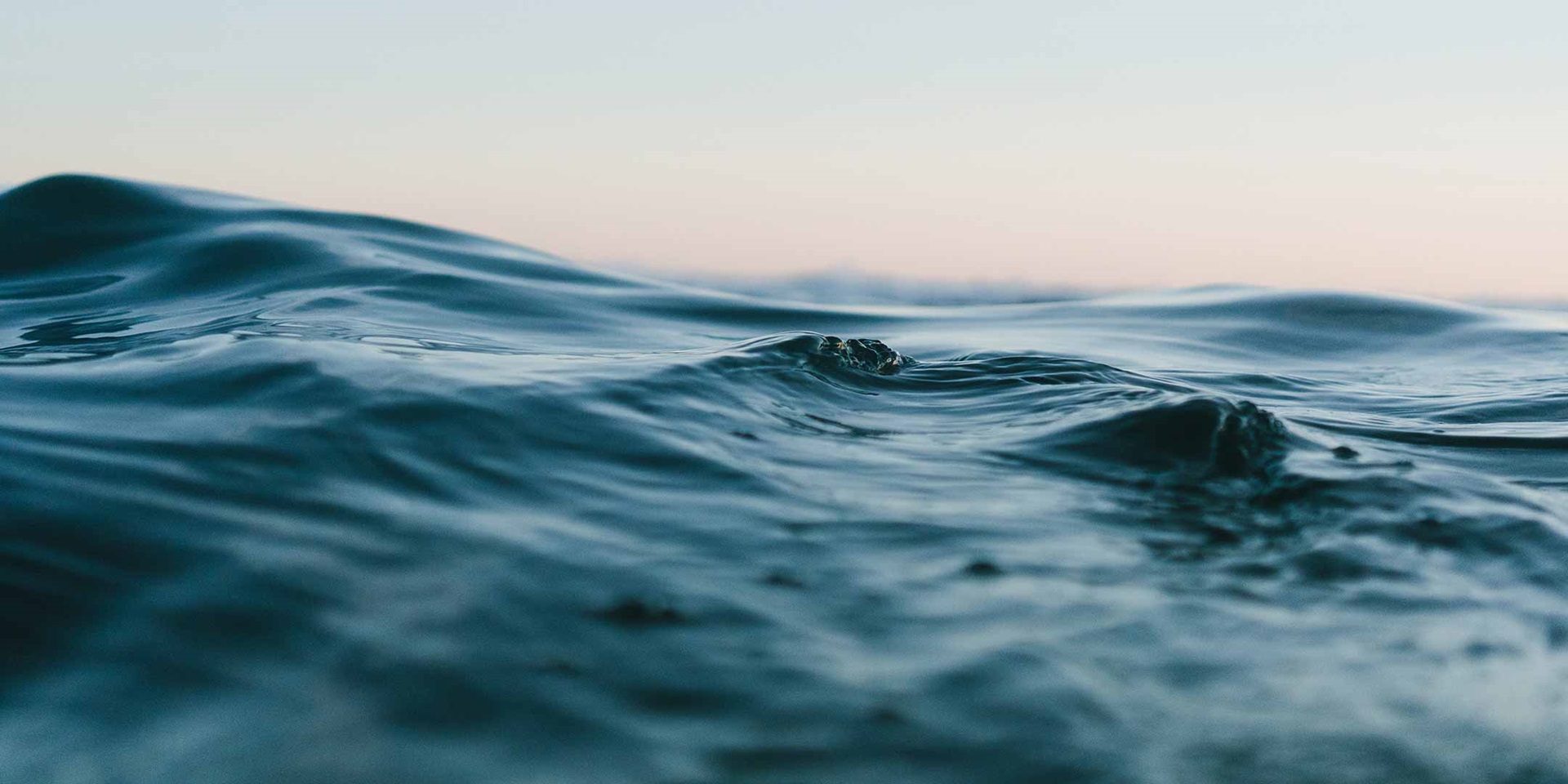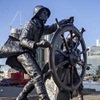
Did you know that more than 70 per cent of the Earth's surface is covered by oceans?
The health of our oceans stands as one of today's biggest challenges. Trying to address and solve some of the main threats affecting our oceans are defenders and innovators Jeff Hansen, Dr Julia Reisser and Tim Silverwood. Before they speak at this Thursday's Ocean Talk, we asked them five burning questions.
1. Could you give a quick overview of what do you do?
Jeff: I'm the Managing Director of Sea Shepherd Australia and one of the six trusted global directors. I can be doing anything from running the organisation to running campaigns, setting strategies, liaising with donors and doing talks – ensuring that Sea Shepherd remains an effective movement to tackle the key threats to our oceans.
Julia: Early this year, I co-founded a new start-up called Uluu. Our mission is to replace conventional plastics with climate positive biomaterials made with marine plants. I also lead ocean plastic research at the University of Western Australia (UWA). I am currently getting ready to deliver an online short course on solutions to plastic pollution.
To make myself even busier, I am also doing a part-time MBA in Innovation to complement the skills I have gained over the last 15 years in setting up, managing and leading research projects both in the lab and during scientific expeditions in the Atlantic, Pacific, Indian, and Antarctic oceans.
Tim: I am the co-founder of Ocean Impact Organisation and I was also the co-founder of Take 3 for the Sea and the CEO of that organisation up until March 2020. What I do now is essentially advocate for action to protect the ocean. Ocean Impact Organisation is Australia's first dedicated ocean impact ecosystem and start up accelerator. We help people start, grow and invest in businesses that positively impact the ocean. So we're essentially looking for entrepreneurs and start-ups who've got a business solution that can help create a positive impact on planet ocean.
2. While all three of you have different careers, the ocean sits at the centre of what you do. When did your passion for the ocean start and why?
Julia: I am from a coastal town in South Brazil and I have always loved the oceans and the sense of adventure, connection, wonder and peace that it brings to me. I have always been a geek too and I was so curious and keen to learn about the oceans that I decided to do an honours, Masters and PhD in Oceanography. The more I learn about the sea, the more I realise there are so many secrets to be uncovered still!
Tim: I was born in North Queensland in Cairns, so I always had the ocean at my doorstep. I then moved down to the Central Coast in New South Wales when I was about three-years-old, so my early memories are playing in little coastal lagoons, exploring rock pools and eventually getting confident enough to get into the big ocean. I picked up a body-board from the age of 10 and throughout my teens I was an avid body-boarder and would go and explore amazing parts of the east coast where I had interactions with dolphins, whales, sharks and turtles – so the ocean just became a really important part of my life and it still is. As I went through schooling, university and travelling the world, I realised just how much of a risk there was to the ocean and that compelled me to want to be an environmentalist to do anything I could to protect the ocean.
Jeff: Well it's funny because I've always been more at home in the Australian bush and I always had reptiles as pets growing up. I knew that I studied the wrong thing at university (double degree in Electronic Engineering and Computer Science with Honours) and I knew I was doing the wrong career. In 2006 however, I was with my mum in Melbourne and we saw this black ship (the Farley Mowat, named after the famous Canadian author and environmentalist) and I went on board for a tour with one of the volunteers from Sea Shepherd.
I heard the words of Paul Watson (founder of Sea Shepherd), talking about the importance of our oceans, and the movement to save life and Earth is the most important movement in the world and we need to stand up and fight. And when I heard Paul speak and I saw the images of whales that had been killed, and the more I learnt about the oceans and their importance, the more I realised it's such an amazing wonder of biodiversity. Most of the air that we breathe comes from our oceans, they're our primary life support. We could have all the cures in the world for people, but it's all for nothing if we don't look after nature.
3. What has been your career highlight so far?
Tim: Probably in 2016 when I was invited to go to the USA to present at the State Department in Washington DC for a global conference called Our Ocean and I moderated a session. What was most amazing about that experience was I shared the same stage with Barack Obama, Leonardo DiCaprio and some of the most amazing idols that I have from the ocean conservation space.
Jeff: That's a tough one, there's been a lot ... The top one is playing a really key role in the movement to grow Sea Shepherd in Australia and be a huge support base with funding and infrastructure to launch our campaigns to effectively shut down whaling in the Southern Ocean Whale Sanctuary – a David and Goliath battle that we've won – which is pretty phenomenal.
Another one would be taking the Steve Irwin twice to the Great Australian Bight and as a result of that campaign and the Great Australian Bight Alliance, kicking out all big oil companies out, so that's another big one.
Julia: I would say it was what we managed to do at The Ocean Cleanup when I was working as their Chief Scientist. Using about 20 boats, an aircraft and heaps of lab and modelling research, we conducted a very detailed map of the so-called Great Pacific Garbage Patch. We also mapped river plastic flows to oceans at a global scale. The new knowledge we gathered has helped both those working on upstream solutions to the ocean plastic issue, as well as engineers developing cleanup technologies to rid oceans of plastic.
4. In your opinion, what are the main challenges we need to overcome to help improve the health of our oceans?
Jeff: Well I think one of the main challenges is we can have all these laws and regulations to protect our oceans, but there's a lack of enforcement – so I think we need more action, we need our oceans patrolled and looked after, and we also need our international waters protected.
But ultimately, it's a changing mentality of a deep understanding of the ecological importance of biodiversity – that's what needs to change globally across every government leader. Changes and decisions should be made that don't impact the ecology of our planet, and a deep understanding should be taught through all societies of the importance of the natural world. And I love Paul Watson's analogy of this is spaceship Earth hurtling through space. And like any spaceship there's the passengers and the crew. The crew run the ship, the insects, the turtles, the sharks, the forests, they regulate our climate, they take care of our waste, they provide us with the food that we eat and the air that we breathe. We’re just the passengers, we’re just here having a good time but the problem is we’re killing off the crew – so we’ve got to protect the crew.
Julia: Climate change, overfishing and marine pollution. I hope to contribute to solving these issues by scaling up the work we are doing at Uluu. By removing carbon from the environment we help fight global warming, while by farming seaweed we provide coastal communities with sustainable jobs that are actually good for the environment and cleans up oceans from things such as agricultural and industrial runoffs.
Tim: I think the most important thing we need to overcome is the human inability to understand the fragility of our planet. If we were in outer space right now, we'd be looking back at our planet and it would just be blue, a pale blue dot in this infinite darkness and that's because the ocean covers most of the planet's surface. So we somehow need to convince and compel humans to think beyond themselves and beyond the comforts we've created for our existence, to look at the consequences of our actions on the ocean, the atmosphere and our terrestrial landscapes as well.
5. What is something simple we can all do to help futureproof our oceans?
Julia: All of us have a massive power in our hands both as consumers and citizens. Make sure you support responsible businesses by purchasing products that are healthy to both people and planet, plus make sure you vote for politicians capable of thinking long-term and taking care of our communities and precious environments.
Tim: It's an old cliche but vote with your wallet is really the thing I think we can do, particularly around things like seafood or other agricultural products. If we understand the story behind where that product came from and what the consequences of that product were on the planet and other people and we made an assessment when we were buying these items, that could be revolutionary. Support those businesses and brands that are doing good for the planet, and don't support those that are doing nothing or even worse are doing bad.
Jeff: Do a beach clean-up as every piece of marine debris or plastic removed is a potential life saved. And if you want to do the best thing for the planet and your health, eat more of a plant-based diet.
Want to learn more about the issues currently affecting our oceans and what action Jeff, Julia and Tim are taking? Be sure to register for our free virtual Ocean Talk this Thursday at 7.30 pm.
